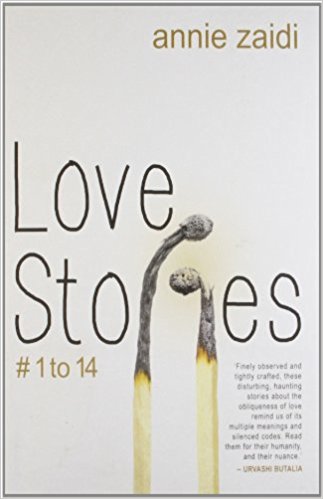Love Stories # 1-14 is not arranged in the numerical order one expects to find on turning the first page—this is the book’s first surprise. And it is this note of whimsy that connects the threads of Annie Zaidi’s fourteen love stories in the collection under review.
Zaidi’s short stories trace the career of love, across lives that range from the young to the young at heart. Let me pick on a few, randomly, though in a rather non-whimsical order. ‘Love Story # 1’ or ‘The one that ended’ muses on a middle-class heterosexual couple’s world whose seams are coming apart at the news of a ‘stitch’—a medical rarity that occurs in one out of ten thousand cases. She tries to keep the news of her disease and hold on to their tender intimacies even as he loses his job. His painstaking realization that it has always been she who began ‘it,’ that medical expenses will demand more attention to the minutiae of life, is set off by a shared, quirky desire to go off on a ‘shameless’ picnic. Their disquietingly intense smiles for each other, on what is a startling jaunt after all, make it excruciatingly intolerable for passers-by to look upon them. The story teases, even as it troubles, lightly, at our tried and tired notions of love.

